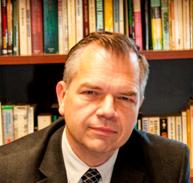Charles Spurgeon was a spiritual giant on the landscape of evangelical Christianity. He was the so-called “Prince of Preachers” in Victorian England, with a massive impact in his society, country and around the world to this day. Spurgeon left an extensive library of thoughts and insights through his sermons and collective works. He reflects a combination of spiritual insights with practicality.
In Lectures to my Students (Ross-shire, UK: Christian Focus, 1998) he methodically addressed the issue of calling. Spurgeon begins by referencing some Old Testament passages. He refers to the call of Jeremiah (1: 4 – 5): “The word of the Lord came to me, saying, “Before I formed you in the womb I knew you, before you were born I set you apart; I appointed you as a prophet to the nations.” He talks about the call of Ezekiel and the unmistakable direction of the Lord (3: 10–11). 10 And he said to me, “Son of man, listen carefully and take to heart all the words I speak to you. 11 Go now to your people in exile and speak to them. Say to them, ‘This is what the Sovereign Lord says,’ whether they listen or fail to listen.”
In the context of these Old Testament examples, Spurgeon then poses the practical question for his devout students in 19th century England. He asked, “How may a young man know whether he is called or not [to full-time ministry]?” The implications of this question for each searching person are no less today than they were in Spurgeon’s era. Spurgeon ruefully notes, “It would be a curious and painful subject for reflection—the frequency with which men in the possession of reason mistake the end of their existence, and aim at objects which they were never intended to pursue.”
Spurgeon proceeds to outline four aspects as to how someone would be able to discern where they are suited for ministry. First, “The first sign of the heavenly calling is an intense, all-absorbing desire for the work.” In other words, there must be a clear passion for the work. From a Christian standpoint we believe that passions are implanted the God.
Secondly, “there must be aptness to teach and some measure of the qualities needful for the office of a public instructor.” This is a classic Spurgeon approach of utmost practicality. In other words, if a person is not gifted for the task, they are likely not called. Spurgeon was a skilled orator. He notes that, “If the gift of utterance be not there is a measure at the first, it is not likely that it will ever be developed.” In short, if the person does not have that gift they are not suited.
Third, “he must see a measure of conversion-work going on under his efforts.” This is Spurgeon’s way of asking whether there has been some practical affirmation of the gifts of the person. Since conversion-going work was part of the task of ministry, have there been fruits thus far? In the context of discerning a person’s calling, how often do people think they are called to something when they have not tested out their capabilities? Spurgeon asks plaintively, “How are they sent of God who bring no men to God?”
Fourthly, has there been community affirmation? Do the people who know you best think that you are on the right track? Spurgeon notes that, “It is needful as a proof of your vocation that your preaching should be acceptable to the people of God.”
Spurgeon references that John Newton [who wrote Amazing Grace] wrote to a friend on this subject and had similar thoughts. John Newton said that a calling must involve, “A warm and earnest desire to be employed in this service [full-time ministry].” In addition, “there must in due season appear some competent sufficiency as to gifts, knowledge, and utterance.” Lastly, “That which finally evidences a proper call, is a correspondent opening in providence, by a gradual train of circumstances pointing out the means, the time, the place, of actually entering upon the work.”
Spurgeon’s writings on calling reflect the centrality of the concept of calling to the Christian life. Often when I do public speaking on the topic of calling I conclude with this quote from Spurgeon: “Let each man find out what God wants him to do, and then let him do it, or die in the attempt.” [quoted from p. 233 in“ An All-Round Ministry” in Michael, Larry J, Spurgeon on Leadership (Grand Rapids, MI: Kregel, 2003), 67). Though perhaps melodramatic, it nevertheless hits home with its central point. There is no doubt whatsoever that Charles Spurgeon gave his all in living out his calling.
